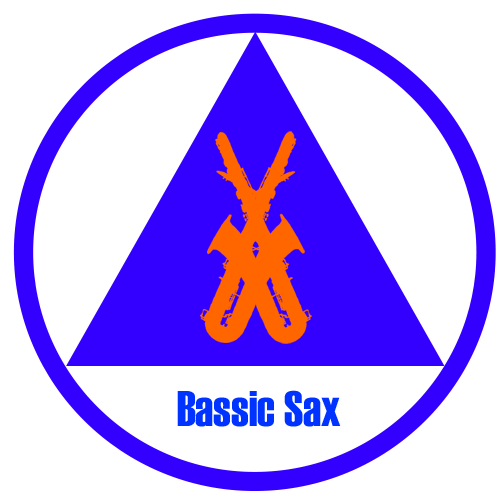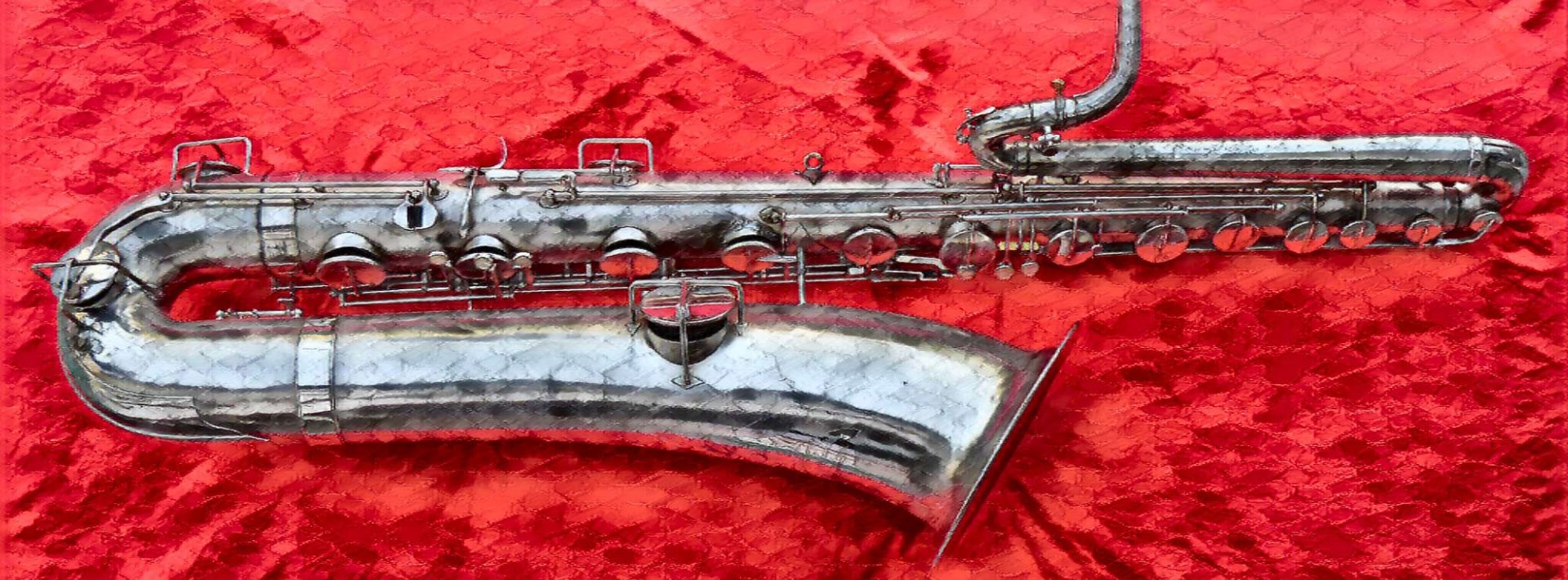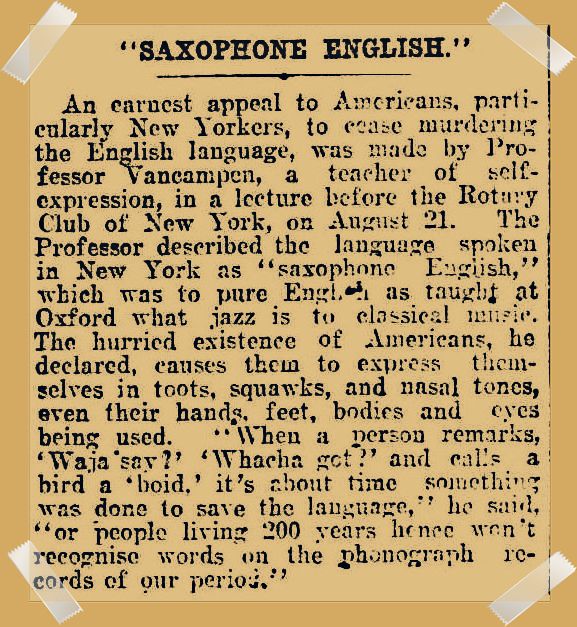I came across something amusing in a newspaper archive this morning that should give us all pause for thought: In 1924 an English professor pleaded with Americans to stop using what he called “saxophone English”.
What is saxophone English? Well that’s a good question. Here is the article taken from the October 15, 1924 edition of the Daily News:

If Professor Vancampen thought that New Yorkers were talking saxophone English in 1924 by saying things like “Waja say?”; “Whacha get?”; and “boid” instead of bird, then I can only imagine what he would think of what the English has evolved (devolved?) into over the last 92 years.
To keep up with the ever-changing English language, we have the online Urban Dictionary that allows users to upload and update words and phrases such as: Netflix and chill; procaffenating; petextrian; cheater app; and literally hundreds more ranging from A to Z—including emoticons.
Speaking of emoticons, as anyone with a smartphone can tell you, thanks to android and iPhone keyboards you can now write entire texts in the next generation of these little smiley faces: emojies. There are hundreds (thousands probably) of pages on the Net dedicated to creating and deciphering them.
Oh yah, the English language has devolved alright, into a bunch of little signs and symbols rivalling Egyptian hieroglyphics… And for your grandparents with a smartphone, about as easy to read as well. 😈
As far as Vancampen’s worry that “people living 200 years hence won’t recognise words on the phonograph records of our period”, apparently he really worried for nothing about that. We still understand the words quite well.
YouTube has made many of those recordings more accessible than ever before, and the quaintness of the lyrics seem laughable in today’s world. In a pop culture world where albums regularly come with content warnings, and where radio stations regularly have to censor certain songs due to content, the lyrics of the 1920s seem downright innocent. They didn’t glorify guns, gang life, sex, or misogyny.
Oh yes, the English language has evolved, and simultaneously devolved, over the past 100 years. However, is that any different than over any other periods of time?
To see the evolution of the English language, we have to look no further than to the writings William Shakespeare (1564-1616). Shakespeare is often held up to be the greatest writer in the English language. Anyone who has ever read any of his work can tell you that his writing bears no resemblance to the English being written today—or for that matter the English that was written when Professor Vancampen was making his argument that our language was devolving into saxophone English.
English, like all languages, is a living thing. It changes over time as the people and cultures who use it evolve. To say that New Yorkers were speaking saxophone English through “toots, squawks, and nasal tones”, shows Vancampen’s bias against jazz music. Oh well, chalk it up to another sax hater from the 1920s, who was not a hot jazz fan.



